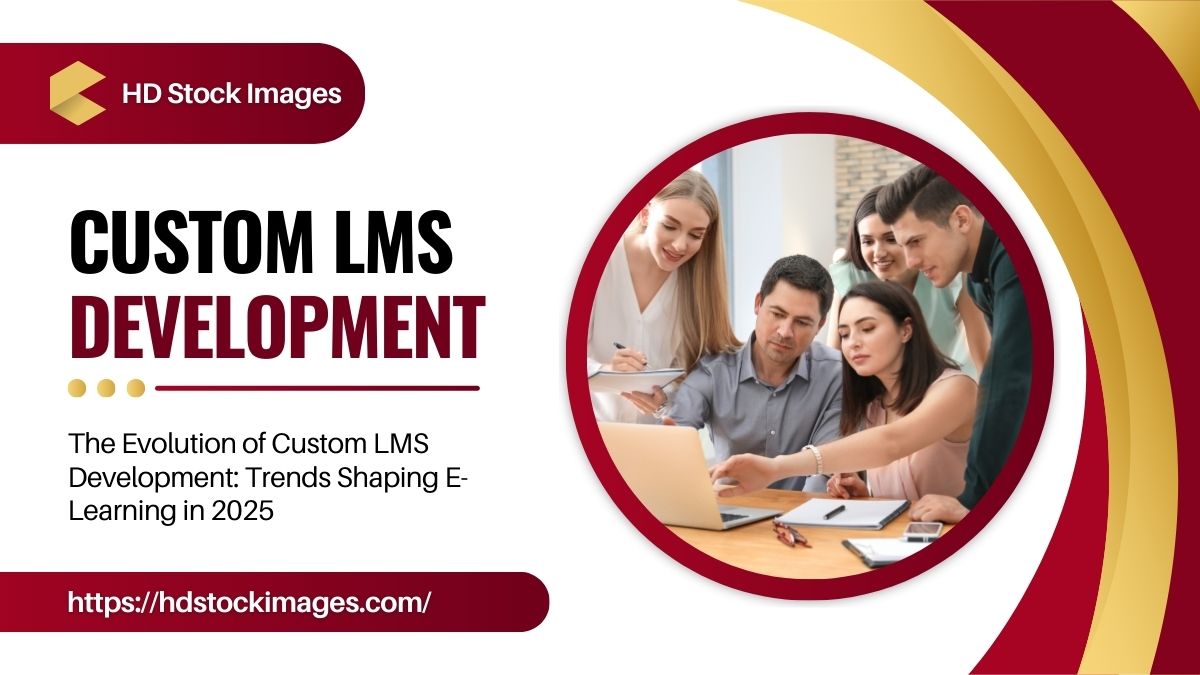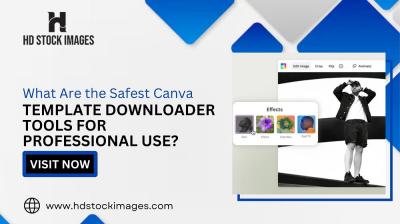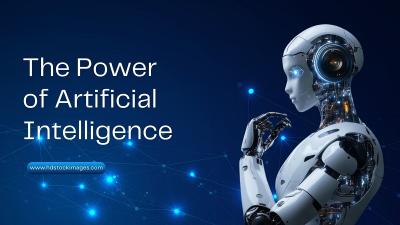As we approach 2025, the landscape of e-learning continues to undergo rapid transformation, driven by technological advancements and changing learner expectations. Custom Learning Management Systems (LMS) like offered by
Aristek are at the forefront of this evolution, adapting to meet the diverse needs of educational institutions, corporations, and individual learners. This article explores the key trends that are expected to shape custom LMS development in 2025, offering a glimpse into the future of digital learning platforms.
1. Artificial Intelligence and Adaptive Learning
Artificial Intelligence (AI) is set to revolutionize custom LMS development in 2025, offering unprecedented levels of personalization and adaptivity in the learning experience.
Intelligent Content Curation:
AI-powered LMS platforms
developed by Aristek will leverage machine learning algorithms to analyze learner behavior, preferences, and performance data. This analysis will enable the system to automatically curate and recommend personalized learning content, ensuring that each user receives the most relevant and engaging materials tailored to their specific needs and learning style.
Dynamic Difficulty Adjustment:
Custom LMS solutions will incorporate AI-driven systems that can adjust the difficulty level of course content in real-time based on a learner's performance. This adaptive approach ensures that learners are consistently challenged without becoming overwhelmed, optimizing the pace of learning for each individual.
AI-Powered Virtual Tutors:
Advanced natural language processing and machine learning techniques will enable the development of sophisticated AI tutors within LMS platforms. These virtual assistants will be capable of answering questions, providing explanations, and offering guidance to learners 24/7, enhancing the support available to students and reducing the workload on human instructors.
Predictive Analytics for Learning Outcomes:
AI will play a crucial role in analyzing vast amounts of learner data to predict learning outcomes and identify potential obstacles. This predictive capability will allow educators and administrators to intervene proactively, providing additional support or resources to learners who may be at risk of falling behind or dropping out.
2. Immersive Learning Experiences
The integration of immersive technologies into custom LMS platforms will transform the way learners engage with educational content in 2025.
Virtual Reality (VR) Classrooms:
Custom LMS developers will incorporate VR capabilities, allowing for the creation of fully immersive virtual classrooms. These environments will enable learners to participate in lifelike simulations, attend virtual lectures, and collaborate with peers in a 3D space, regardless of their physical location.
Augmented Reality (AR) Enhanced Learning Materials:
AR features integrated into LMS platforms will allow learners to interact with 3D models, visualizations, and annotations overlaid on the real world. This technology will be particularly valuable for subjects that benefit from visual and spatial understanding, such as anatomy, architecture, and engineering.
Mixed Reality (MR) Collaborative Spaces:
Advanced LMS platforms will support mixed reality environments where physical and digital objects coexist and interact in real-time. This will enable new forms of collaborative learning and problem-solving, blending the benefits of both physical and virtual learning spaces.
Haptic Feedback for Skill Development:
Custom LMS solutions will begin to incorporate haptic feedback technologies, allowing learners to experience tactile sensations in virtual environments. This addition will be particularly valuable for developing motor skills in fields such as medicine, manufacturing, and the arts.
3. Microlearning and Just-in-Time Learning
The trend towards bite-sized, on-demand learning content will continue to gain momentum in 2025, catering to the needs of busy professionals and the modern attention span.
AI-Curated Microlearning Pathways:
Custom LMS platforms will use AI to create personalized microlearning pathways, assembling bite-sized content modules into coherent learning journeys tailored to each user's goals and preferences.
Mobile-First Microlearning Design:
LMS developers will prioritize mobile-first design principles for microlearning content, ensuring that bite-sized lessons are optimized for consumption on smartphones and tablets. This approach will support learning on-the-go and increase engagement with educational content.
Just-in-Time Performance Support:
Advanced LMS solutions will offer context-aware, just-in-time learning resources that can be accessed at the moment of need. This feature will be particularly valuable in professional settings, providing employees with immediate access to relevant information and training when facing specific challenges.
Gamified Microlearning Challenges:
To enhance engagement with bite-sized content, custom LMS platforms will incorporate gamified elements such as daily challenges, quests, and leaderboards specifically designed for microlearning modules.
4. Social Learning and Collaborative Ecosystems
Recognizing the importance of social interaction in the learning process, custom LMS development in 2025 will focus on creating robust social and collaborative features.
Integrated Learning Communities:
LMS platforms will evolve to include built-in social networking features, allowing learners to connect, share resources, and engage in discussions within a secure, education-focused environment. These communities will foster peer-to-peer learning and support.
Virtual Co-Working Spaces:
Advanced collaboration tools will enable learners to work together in virtual co-working spaces, regardless of their physical location. These spaces will support real-time document sharing, collaborative editing, and seamless communication among team members.
AI-Facilitated Group Formation:
Custom LMS platforms will use AI algorithms to form study groups and project teams based on complementary skills, learning goals, and schedules. This intelligent matching will enhance collaborative learning experiences and improve project outcomes.
Expert-Learner Connections:
LMS solutions will incorporate features that facilitate connections between learners and subject matter experts. This may include mentor matching programs, virtual office hours, or on-demand expert consultations integrated directly into the learning platform.
5. Blockchain for Credentialing and Skill Verification
The adoption of blockchain technology in custom LMS development will revolutionize the way educational achievements are recorded, verified, and shared.
Secure Digital Credentials:
Blockchain-based digital credentials will become a standard feature in advanced LMS platforms, providing tamper-proof verification of course completions, degrees, and certifications. These credentials will be easily shareable and instantly verifiable by employers or other institutions.
Lifelong Learning Passports:
Custom LMS solutions will offer blockchain-secured, comprehensive learning passports that record all of a learner's educational achievements, skills, and experiences. These digital passports will provide a holistic view of an individual's capabilities and serve as a verified resume for career advancement.
Micro-Credentialing and Skill Tokens:
Blockchain technology will enable the creation and verification of micro-credentials and skill tokens, allowing for more granular recognition of competencies. Learners will be able to accumulate and showcase specific skills acquired through various learning experiences.
Smart Contracts for Automated Certifications:
Advanced LMS platforms will implement smart contracts on blockchain networks to automate the issuance of certifications upon completion of specific learning milestones or requirements. This will streamline the credentialing process and reduce administrative overhead.
6. Advanced Data Analytics and Learning Insights
As data becomes increasingly valuable in education, custom LMS development in 2025 will focus on providing more comprehensive and actionable analytics.
Real-Time Learning Analytics Dashboards:
LMS platforms will offer sophisticated analytics dashboards that provide real-time insights into learner engagement, progress, and performance. These dashboards will use advanced data visualization techniques to make complex information easily digestible for educators and administrators.
Predictive Modeling for Student Success:
By leveraging big data and machine learning, custom LMS solutions will offer predictive modeling capabilities to forecast learner outcomes and identify potential areas for intervention. This will enable proactive support and personalized guidance to improve student success rates.
Natural Language Processing for Feedback Analysis:
Advanced LMS platforms will use natural language processing to analyze open-ended learner feedback, discussion posts, and assignments. This analysis will provide insights into learner sentiment, comprehension levels, and areas of difficulty across courses and content.
Learning Experience Analytics:
Custom LMS developers will incorporate tools to analyze the effectiveness of various learning experiences and content types. This data will help instructors and instructional designers optimize course materials and teaching strategies for maximum impact.
7. Internet of Things (IoT) Integration
The Internet of Things will play an increasing role in custom LMS development, expanding the boundaries of the learning environment and providing new data sources for personalized learning.
Wearable Device Integration:
LMS platforms will integrate with wearable devices to track physical activities, stress levels, and other biometric data. This information can be used to optimize learning schedules, recommend breaks, or incorporate wellness activities into the learning experience.
Smart Classroom Ecosystems:
Custom LMS solutions will offer seamless integration with smart classroom technologies, such as interactive displays, environmental sensors, and attendance tracking systems. This integration will enhance the blended learning experience and provide valuable data on in-person learning activities.
IoT-Enabled Practical Training:
In fields like manufacturing, healthcare, or engineering, LMS platforms will interface with IoT-enabled equipment to provide real-time data and feedback during practical training sessions. This will allow for more realistic and data-driven hands-on learning experiences.
Location-Based Learning Triggers:
Geolocation features will enable LMS platforms to deliver context-aware content based on a learner's physical location. This can be used to support field-based learning activities, provide just-in-time information during site visits, or offer location-specific safety training.
8. Accessibility and Universal Design
Custom LMS development in 2025 will place a strong emphasis on accessibility and universal design principles to ensure that e-learning platforms are inclusive and usable by all learners.
AI-Powered Accessibility Features:
Advanced natural language processing and computer vision technologies will enable LMS platforms to automatically generate alternative text for images, provide real-time closed captioning for videos, and offer audio descriptions of visual content.
Adaptive User Interfaces:
Custom LMS solutions will offer highly adaptable user interfaces that can be customized to accommodate various visual, auditory, and motor needs. This may include adjustable color schemes, font sizes, and navigation options to ensure a comfortable learning experience for all users.
Multimodal Content Delivery:
LMS platforms will support multimodal content delivery, allowing learners to choose their preferred format (text, audio, video, interactive) for accessing educational materials. AI algorithms will help suggest the most effective content format based on individual learning preferences and accessibility needs.
Cognitive Accessibility Tools:
Advanced LMS platforms will incorporate features designed to support learners with cognitive disabilities, such as adjustable content complexity levels, distraction-free reading modes, and tools for organizing and prioritizing tasks.
9. Continuous Learning and Skill Gap Analysis
As the concept of lifelong learning becomes increasingly important, custom LMS platforms in 2025 will focus on supporting continuous learning and helping users identify and address skill gaps.
AI-Driven Career Pathing:
LMS platforms will use AI to analyze a learner's current skills, interests, and career goals to suggest personalized learning pathways. These pathways will be dynamically updated based on the learner's progress and changes in industry demands.
Integration with Labor Market Data:
Custom LMS solutions will integrate with real-time labor market databases to provide insights into in-demand skills and emerging job opportunities. This integration will help learners align their educational pursuits with current market needs.
Automated Skill Gap Analysis:
Advanced LMS platforms will incorporate automated skill gap analysis tools that compare a learner's current skillset with job market demands or organizational requirements. These tools will provide actionable recommendations for closing identified skill gaps.
Continuous Learning Recommendation Engine:
AI-driven systems will provide ongoing recommendations for courses, webinars, and other learning resources based on a user's career progression, industry trends, and personal interests. This will encourage lifelong learning and help professionals stay current in their fields.
10. Personalized Content Creation and Curation
Custom LMS development in 2025 will focus on tools and features that support the creation and curation of highly personalized learning content.
AI-Assisted Content Creation:
LMS platforms will incorporate AI-powered tools to assist instructors in creating personalized learning materials. These tools may include automated content summarization, language simplification, and the generation of practice questions tailored to individual learner needs.
Dynamic Content Assembly:
Advanced LMS solutions will use AI to dynamically assemble learning materials from a repository of content objects, creating personalized lessons that cater to each learner's prior knowledge, learning style, and goals.
User-Generated Content Curation:
Custom LMS platforms will provide tools for learners to curate and share their own content, such as notes, summaries, and resources. AI algorithms will help organize and recommend user-generated content to other learners, fostering a collaborative learning environment.
Adaptive Assessments and Quizzes:
LMS developers will create adaptive assessment engines that can generate personalized quizzes and tests based on a learner's performance history and learning objectives. These assessments will provide more accurate evaluations of learner progress and identify areas for improvement.
Conclusion:
As we look towards 2025, the future of custom LMS development is filled with exciting possibilities. The integration of AI, immersive technologies, and blockchain will create more personalized, engaging, and verifiable learning experiences. The focus on microlearning, social collaboration, and continuous skill development will cater to the evolving needs of modern learners, while enhanced analytics and IoT integration will provide deeper insights and expand the boundaries of the learning environment.Companies like Aristek are at the forefront of these developments, leveraging cutting-edge technologies to create custom LMS solutions that meet the diverse needs of learners and organizations. As the e-learning industry continues to evolve, Aristek and other innovative developers will play a crucial role in shaping the future of digital education.The trends discussed in this article represent just a glimpse of the exciting possibilities that lie ahead in the world of custom LMS development. As technology continues to advance and our understanding of effective learning methodologies deepens, we can expect to see even more innovative features and capabilities emerge in the coming years.Educators, learners, and organizations that embrace these trends and invest in custom LMS solutions will be well-positioned to thrive in the rapidly changing landscape of education and professional development. By staying ahead of these trends and continuously adapting to meet the needs of their users, custom LMS platforms will continue to play a vital role in shaping the future of learning in 2025 and beyond.As we navigate this evolving landscape, it's clear that the future of education and training will be more personalized, accessible, and effective than ever before. Custom LMS development will be at the heart of this transformation, empowering learners to achieve their goals and organizations to cultivate a skilled and adaptable workforce. The journey towards this future of learning is already underway, and the innovations we see in 2025 will set the stage for even greater advancements in the years to come.


 admin
admin








